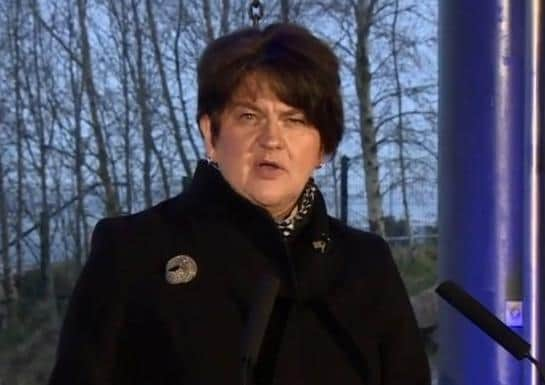Alex Kane: Battleground for the Union could be in our coffee shops


That’s how the domino effect begins in politics: the realisation that majorities once regarded as rock solid are crumbling and a change-of-hands is a distinct possibility. There’s nothing more damaging to a political/ideological cause than the loss of seats, followed by a struggle to hold on in places where votes could once have been weighed than counted.
Seats change hands for many reasons, a key one being the emergence of new demographics. This is from a recent piece in the Financial Times by Robert Shrimsley:
Advertisement
Hide AdAdvertisement
Hide Ad‘There is a better way: making t he “best of both worlds” argument for the Union, which the province’s hybrid state allows. Staving off reunification means not forcing a choice. It means easing tensions, not provoking them. It lies in retaining younger moderate Protestants and peeling the nonaligned from the nationalist cause.


It means winning back people in those east Belfast coffee shops (one observer highlights the coffee shops springing up in the now marginal seat of east Belfast), who look at Britain and Ireland and see modern liberal economies and are repelled by the sectarianism and conservatism of older unionists. Although the long term drift is towards unification, a hybrid state could last longer than many imagine. But this demands a shrewd unionist leadership. On current showing, then, perhaps the fatalism is justified.’
But what Shrimsley and former chancellor George Osborne (writing in the Evening Standard last week about dangers to the Union) didn’t actually focus on was that it was also the personal behaviour of Boris Johnson and the fuelling by others of a new, increasingly far-right English nationalism which made life so difficult for unionism.
Yes, Arlene Foster and Co made a dog’s dinner of their relationship with Theresa May and Johnson, even though it was clear, even before he became prime minister, Johnson had made the decision to play to the Farage audience rather than pursue the broader, more measured option of what might be described as pan-UK unionism. Time after time the DUP behaved with epic stupidity, yet in the end it was the prime minister and Parliament of the UK who chose to push NI further away from GB’s ambit.
Advertisement
Hide AdAdvertisement
Hide AdDavid Cameron tried to pull a fast one in the 2015 manifesto, promising an in/out referendum because he wanted to outflank Ukip and win a comfortable majority (probably hoping to abandon the commitment thereafter). He got his majority, but it was slim (12) and he couldn’t afford to risk losing the support of the ERG wing – around 60 or so – of his parliamentary party.
He lost the referendum because he didn’t do the work required for victory. He had taken the same approach to the Scottish referendum in 2014 and only secured the victory because of the late intervention of Gordon Brown. But there was no charismatic figure on the Remain side and, rather than promote the supposed benefits of the EU, Cameron gave the imprimatur to an absurd and negative campaign which could easily have used the promotional line for the original Alien film: Be Afraid. Be Very Afraid.
Running from office within hours of losing didn’t help. At a moment when the UK needed stability at the centre, his sulking cowardice paved the way for a successor who lacked charisma, strategy, conviction, commitment and control of her party. In turn, her stunning inadequacies paved the way for the congenitally bonkers Johnson.
That the DUP chose to work with both of them and gained nothing, absolutely nothing, for their support (the financial package they agreed could never compensate for the subsequent constitutional damage), should haunt and hound the leadership until the end of their political careers.
Advertisement
Hide AdAdvertisement
Hide AdAnyway, we are where we are. In a hybrid world in which the DUP has been embarrassed and stripped of authority; Foster is assailed by internal opponents on all sides; nobody in Westminster has any sympathy for the party; and if she should fall – which seems increasingly likely – there is no obvious successor to provide the ‘shrewd leadership’ which is so obviously required.
All of which brings us back to Shrimsley. Last week I noted that polling analyst Marcus Leroux had identified a new demography: the ‘scundered unionist’. Shrimsley seems to have identified another: the coffee drinking Protestants of east Belfast (related, perhaps, to Jamie Bryson’s latte drinking liberal elite?). I would be more inclined to describe them as secular/agnostic rather than Protestant; and broadly pro-Union rather than party-political unionist.
Never mind, it is clear that quite a few newish demographics have appeared – often unnoticed – within the unionist/loyalist/Protestant/secular/civic unionist community. Many of them, while nominally pro-Union, are not attracted to ‘unionist’ parties and candidates and have either chosen to stay at home, or drifted to Alliance and some smaller parties like the Greens.
Ironically, that’s probably a greater problem for Steve Aiken than the DUP at the moment, because it suggests that most of these demographics have already decided the UUP is not their primary alternative to the DUP. But it doesn’t mean the DUP can wipe its brow and carry on regardless.
There is no such thing as a typical unionist voter anymore. That fact, more than any other, should make the unionist parties stop and reassess their approach and strategies.